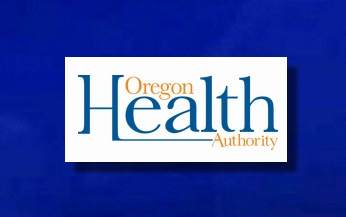OHA: Health care providers reimbursed by state must provide certified, qualified health care interpreters

PORTLAND, Ore. (KTVZ) — New rules that go into effect July 1 will require health care providers reimbursed with public funds to work with credentialed health care interpreters qualified or certified by Oregon Health Authority.
The rules drafted by OHA reflect changes in the requirement for health care interpreting services in Oregon that were made by the state Legislature’s passage of House Bill 2359 during the 2021 session. These new rules will ensure that people for whom English is a second language (those with limited English proficiency) or who use sign language can access high-quality interpreting services so they can receive health care like anyone else in Oregon. This access is critical to achieving the state’s mission of eliminating health inequities by 2030.
In addition to requiring publicly reimbursed health care providers to work with a qualified or certified health care interpreter listed on OHA’s 900-plus-member central registry, the law outlines recordkeeping requirements for health care providers and interpreting service companies when they work with a health care interpreter. Among the requirements are that they document the interpreter’s name, central registry number and language interpreted.
The law also requires health care providers to supply appropriate personal protective equipment, or PPE, at no cost to a health care interpreter for onsite interpreting services. And it directs OHA to develop policies and processes to improve the quality, consistency, availability and affordability of training, and qualification and certification standards, for health care interpreters, as well as accuracy and usability of the OHA central registry.
In addition, OHA – and state boards that license and certify health care professionals – must develop rules to enforce the new requirements for health care interpreting services.
“We are pleased we received participation and input from community partners and pleased that this legislation strengthens and supports language interpretation services in Oregon,” said Leann Johnson, director of the Equity and Inclusion Division at OHA.
Johnson added that the new rules ensure health care providers and interpretation service companies work with best practices in providing health care interpretation services. The rules also will improve access to health care interpreters in rural communities in Oregon, particularly to interpreters capable of interpreting languages of limited diffusion – or spoken by a small population – in those areas.
One of the organizations OHA is partnering with to eliminate barriers that prevent access to health care interpreter services is Pueblo Unido PDX. The Portland-based nonprofit connects individuals with a vulnerable immigration status in the Pacific Northwest with legal, social and Indigenous language interpretation services.
“Pueblo Unido PDX and the Collective of Indigenous Interpreters of Oregon (CIIO) are grateful for the opportunity to collaborate with OHA to identify and address barriers to healthcare interpreter credentialing for Indigenous language interpreters,” said Cam Coval, executive director of Pueblo Unido PDX.
He said OHA’s Equity and Inclusion Division staff actively listened to feedback from Pueblo Unido and CIIO and “did not hesitate to implement our suggested changes, including eliminating the background check requirement and creating an exception to the GED or educational equivalency requirement for health care interpreters.”
Pueblo Unido and CIIO, he said, look forward to continued collaboration with OHA to ensure that required interpreter trainings are offered in Spanish; verify that patients are paired with an interpreter that speaks the correct variation of their Indigenous language; and develop more robust language proficiency evaluation mechanisms to determine that Indigenous language interpreters are indeed proficient in the target language.
House Bill 2359 allows some exceptions for health care providers in working with a health care interpreter, including that:
- The health care provider is proficient in the preferred language of the person with limited English proficiency.
- The person with limited English proficiency has an interpreter they prefer to work with who is not on the central registry.
- The health care provider tried to find an interpreter using the central registry, but no interpreters were available.
OHA has been working closely with Oregon Council on Health Care Interpreters, the Oregon Department of Justice, health systems and other community partners to identify additional changes that reduce costs for health care interpreters associated with inclusion in the OHA central registry and administrative burdens. For example, all OHA central registry application and renewal fees for interpreters have been removed; training is offered for free or at low cost; training and experience requirements have been updated to maintain and improve interpreter quality standards; and an interpreter’s transition from qualified to certified status is now optional rather than required.
Health care providers and interpreting service companies will be given time – one year – to transition to the new requirements for working with OHA central registry interpreters who work remotely. Also, interpreters will no longer need to pass a background check to be included as a qualified or certified interpreter on the OHA central registry.
For more information about HB 2359, OHA’s central registry or health care interpreter services, visit the Health Care Interpreter Program website.